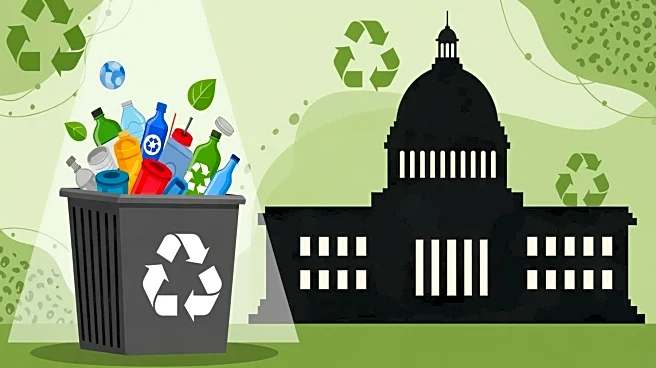What's Happening?
Tesco is urging the UK Government to implement regulations that would encourage a significant shift towards reusable plastic packaging. The supermarket chain emphasizes the need for legislative action to prevent the closure of recycling facilities, which
is crucial for the success of plastic reduction initiatives. This call to action comes as the UK Packaging Pact is set to introduce a new model in November, focusing on reusable packaging. James Bull, Tesco's head of packaging, highlighted the challenges faced by the pact but expressed optimism that these could be overcome with the right regulatory support. Despite obstacles, major UK supermarkets are committed to reducing single-use plastics. Bull also pointed out the lack of adequate incentives and recycling facilities in the UK, stressing the importance of creating a viable market for recycled materials.
Why It's Important?
The closure of recycling facilities poses a significant threat to the UK's efforts to reduce plastic waste. Without a robust recycling infrastructure, the transition to reusable packaging could be severely hampered, undermining environmental goals. Tesco's call for government intervention highlights the need for a coordinated approach to ensure the recycling industry can support the demand for recycled content. This issue is critical as it affects not only environmental sustainability but also the economic viability of recycling businesses. The success of the UK Packaging Pact and similar initiatives depends on effective legislation that incentivizes recycling and supports the development of a circular economy.
What's Next?
The introduction of the new UK Packaging Pact in November will be a pivotal moment for the industry. Stakeholders will be watching closely to see if the government responds to Tesco's call for action. If successful, the pact could lead to a significant reduction in single-use plastics and set a precedent for other countries. However, without government support, the risk of recycling facility closures could continue, potentially stalling progress. The response from other major supermarkets and industry players will also be crucial in shaping the future of plastic reduction efforts in the UK.















